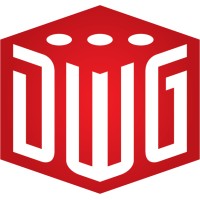
Design Works Gaming
We build top-performing casino games for the industry's biggest names across three verticals: Land-Based Gaming, Real-Money Gaming Online and our own Social Games. Land-Based Gaming Our innovative slot creations have made us a recognized leader in 3rd party game development since 2005. We know what it takes to attract players and how to keep them playing because our employees understand how to balance the art and science of game development to produce amazing games. We have a track record of creating games that stand the test of time. We’ve developed some of the most popular titles in the gaming industry, including Panda Queen, Wonders of Africa and Komodo Dragon. We’ve worked with some of the biggest names in the industry, such as Amatic, IGT, Greentube, Everi, Incredible Technologies, Aristocrat, Novomatic and Scientific Games. Real-Money Gaming Online The volume and variety of our games is truly unrivaled – we offer a huge array of themes, math models, features, lines, reels, progressives, game types and big-name titles. And there is hardly a clone in sight. Our promotional tools will help our partners drive the retention and engagement of their players to a level that they are yet to experience. Just as they do in our social casinos. The performance of our games and promotional tools has already been proven in both land-based and social casinos, so you can rest-assured that licensing our content won’t be a gamble. Social Gaming We’ve created three leading Social Casinos – Diamond Sky Casino, Spin Vegas Slots and Super Scratcher Casino – offering hundreds of proprietary slots, scratchers and promotional tools. Our social casinos are enjoyed by millions of players, in more than 100 countries around the world, via Facebook and our iOS and Android apps. The success of our businesses is facilitated by our proprietary technologies, which are 100% built by the amazing DWG team.






